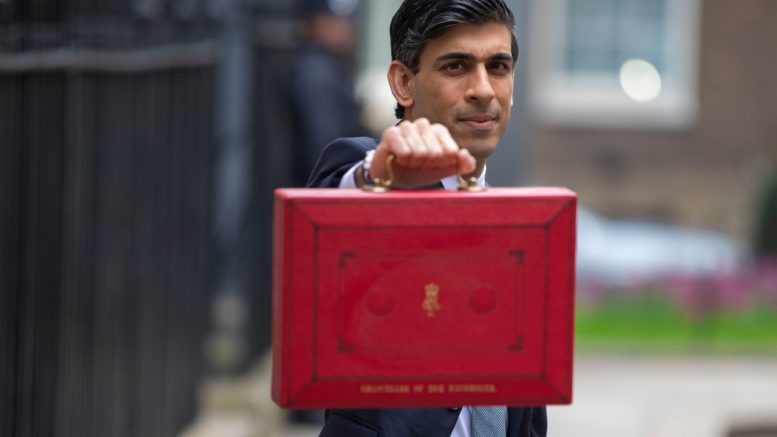This year’s Budget does not draw a line under Covid, but it does begin the work of preparing for a new economy post-Covid, claimed Chancellor of the Exchequer Rishi Sunak, presenting his Autumn Statement to Parliament.
His themes, he said, were investment in a more innovative, high-skilled economy, world class public services, backing for business, and help with cost of living rises for working families. There was little that had an immediate or direct effect on landlords, but some details to take not of.
There were changes made to the Universal Credit rules so that those in work will receive higher payments than now, a move which should help some tenants.
Longer term, there was £11.5bn promised to build up to 180,000 new affordable homes and an extra £1.8bn to bring 1,500 hectares of Brownfield land into use. These sums were going towards meeting a commitment to invest £10bn in new housing.
Some £5bn was promised to remove unsafe cladding from the highest risk buildings, partly funded by the Residential Property Developers Tax, which will be levied on developers with profits over £25m.
A ‘business rates improvement relief’ will mean that from 2023, every business will be able to make property improvements and, for 12 months, pay no extra business rates. Meanwhile, there is to be a one-year 50 per cent cut in business rates for businesses in the retail, hospitality, and leisure sectors.
Those measures of most impact on landlords include:
-
£500m to reduce court backlogs. This was parts of an extra £2.2bn for courts, prisons and probation services, representing a 12 per cent to the Ministry of Justice’s departmental budget.
‘The pandemic created unprecedented challenges but this settlement is the largest increase in more than a decade for the justice system. That means we can focus on building a better, more efficient, justice system for all’, said Justice Secretary and Deputy Prime Minister Dominic Raab.
‘The settlement includes a further £324m over the next three years to improve timeliness in civil and family courts and tribunals. £200m will complete the flagship £1.3bn court reform programme, fulfilling our commitment to a justice system that takes advantage of technology and moves more court processes to quicker and safer online platforms’.
- An extra 30 days has been allowed for those who make a taxable profit on the sale of property to pay their Capital Gains Tax liability. For disposals completed on or after 27 October 2021 the time limit will be 60 and not 30 days.
- A cut from 63 to 55 per cent from 1 December in the amount by which Universal Credit is reduced for every pound earned. This, said NRLA chief executive Ben Beadle, is welcome news for those private tenants who have struggled to afford their rents throughout the pandemic, despite private rents falling in real terms. However it does not undo the damage that previous decisions to freeze housing benefit rates in cash terms will cause. ‘It is simply bizarre to have a system in which support for housing costs will no longer track market rents. The Chancellor needs to undo this unjust policy as matter of urgency’.
- A pledge to bring forward to October 2022 exemptions to the Shared Accommodation Rate (which limits housing benefit support for single people under 35 to a room in a shared house) for victims of domestic abuse and victims of modern slavery.








